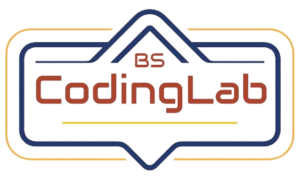- Defination of C
- C-Environment Setup
- How to use c
- History Of C
- Syntax And Structure
- Basic input / Output
- Comments in C
- Data Types
- Variables
- Keywords And Tokens
- Constants
- Operators
- Decision Making
- Looping
- Booleans
- Array
- Strings
- Function
- Structures
- Unions
- Recursion
- Type Casting
- Typedef
- Pointer / Memorry Address
- Preprocessor
- File Handling
- Error Handling
- Memory Management
Function
In C language, a function is a block of code that performs a specific task. It is a self-contained piece of code that can be reused multiple times in a program. Functions provide modularity, which makes the code easy to read, understand, and maintain.
The syntax for defining a function in C language is:-
return_type function_name(parameters)
{
// code to be executed
return value;
}
Here, the return_type specifies the data type of the value that the function returns. The function_name is the name of the function, and the parameters are the inputs that the function takes.
Functions can be called from other functions or from the main() function. When a function is called, the control is transferred to the function, and the code inside the function is executed. The function can then return a value to the calling function, which can be used for further processing. Functions can also be passed arguments, which are the inputs to the function. These arguments can be of different data types, such as integers, characters, or arrays.
Functions can be divided into two categories:-
- Predefined Functions (library functions).
- User-defined functions.
- Predefined Functions :- Library functions are included in the C standard library. Examples include printf() and scanf().
They are included in the standard header files such as stdio.h, math.h, string.h, and others. Predefined functions are available for use in any C program and provide a wide range of functionality that can be used by programmers without having to write the code themselves.
- User-defined functions :- User-defined functions are created by the programmer to perform specific tasks in the program.
The function is defined by the programmer and can be reused multiple times in a program. User-defined functions provide modularity, which makes the code easy to read, understand, and maintain.
User-defined functions can be further classified into two categories:-
- Function with return value :-
This type of function returns a value after performing a specific task. The value can be of any data type, including integer, float, double, char, pointer, or struct. The return value can be used in the program for further processing.
- Function without return value :-
This type of function performs a specific task but does not return any value. It can be used to print output on the console, modify global variables, or perform other operations. The keyword “void” is used to specify that the function does not return any value.
- Peramiterized functions :-
A parameterized function, also known as a function with parameters, is a type of user-defined function in C language that takes one or more input values, called parameters or arguments, when it is called. These input values can be of any data type, including integer, float, double, char, pointer, or struct.
The syntax for defining a parameterized function in C language is:
return_type function_name(data_type para1, data_type para2, …, data_type para-N)
{
// code to be executed
return value;
}
Here, the return_type specifies the data type of the value that the function returns. The function_name is the name of the function, and the parameters are the inputs that the function takes. The parameter list is enclosed in parentheses and separated by commas.
- Peramiterized functions :-
A non-parameterized function, also known as a function without parameters, is a type of user-defined function in C language that does not take any input values when it is called. It performs a specific task and does not require any input values to be passed to it.
The syntax for defining a non-parameterized function in C language is:
return_type function_name()
{
// code to be executed
return value;
}
Here, the return_type specifies the data type of the value that the function returns. The function_name is the name of the function, and the empty parentheses indicate that the function does not take any input values.
Non-parameterized functions are useful when the programmer needs to perform a specific task that does not require input values.
In summary, functions are an important feature of C language that enable programmers to write reusable, modular code. They help to make the code more readable, understandable, and maintainable.
